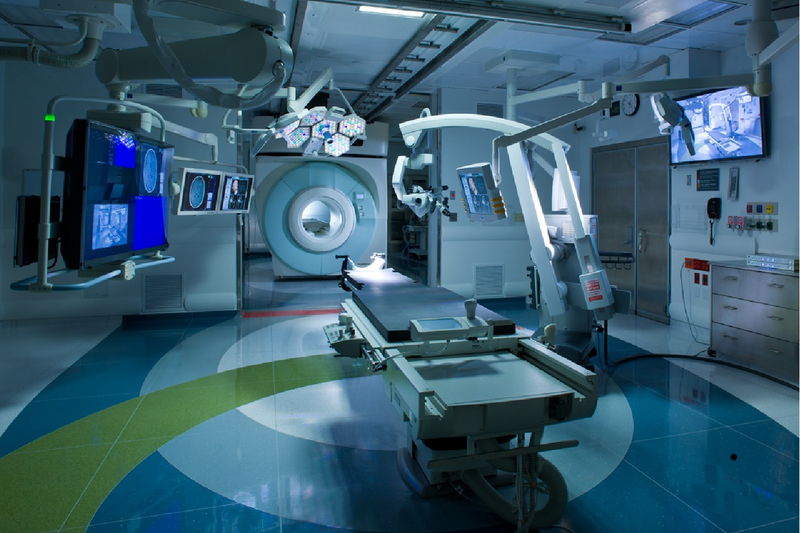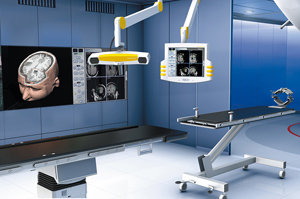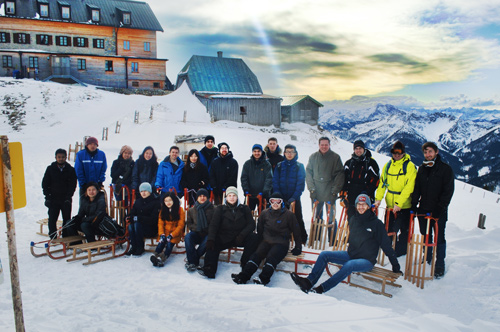Image Guided Surgeries - From Bench to Bedside and Back
... or - from Bedside to Bench and Back ... and BEYOND!
Summer term 2014
Administrative InfoLecture: affiliate Prof. Dr. Michael Friebe and Dr. Jörg TraubTutor: Philipp Matthies Type: Lecture + Lab Courses Module IN2286 Programs: Informatics (Bachelor, Master) Biomedical Computing (Master) Information Systems (Wirtschaftsinformatik) (Bachelor, Master) SWS: 2+2 ECTS: 6 Credits Course Language: English |
Time, Location & RequirementsLecture: The lecture will be held in 6 afternoon blocks of four hours each (1.30pm to 5.30pm), the dates are:
Locations: Conference room in IAS basement and MI 03.13.010 We will have teams working on NOTES procedures, conventional laparoscopy / bronchoscopy, arthroscopy, stenting interventions, and possibly other. The surgeries will be performed in Munich hospitals. The teams will be asked to contact the head surgeons for an appointment and arrange for a Q&A session before and/or after the surgery. The surgery should be well documented -- please use an engineering approach to analyze the procedures. Please note that the lecturers will be available 30 minutes prior to and 1 hour after the lecture in their office in the TUM-IAS building (Room 2.004), 2nd floor, right, last one on the left. Requirements:
|
||||||||
Announcements
|
Photos
|
Lecture Schedule
Readings
- Terry Peters and Kevin Cleary – Image Guided Interventions – Technology and Application – Springer 2008 - ISBN-10: 0387738568
- A. Wolbarst and W. Hendee, Evolving and experimental technologies in medical imaging, Radiology, 238 (2006), pp. 16-39
- PhD Thesis - Chapter 1 & 2 - Joerg Traub, New Concepts for Design and Workflow Driven Evaluation of Computer Assisted Surgery Solutions, 2008, TUM, Munich, Germany
- How Surgeons and Engineers Can Communicate Better
- Selected Workshop and Proceedings of the following congresses: IPCAI/CARS, MICCAI, SMIT
- POWER CARTOON ACCESS -- FOR THE PROJECT: Manuals downloadable at http://www.powtoon.com -- Student Access through here
| TeachingForm | |
|---|---|
| Title: | Image Guided Surgeries - From Bench to Bedside and Back |
| Professor: | affiliate Prof. Dr. Michael Friebe and Dr. Jörg Traub |
| Tutors: | Philipp Matthies |
| Type: | Lecture |
| Information: | 2 + 2 SWS, 6 ECTS Credits (Module IN2286) |
| Term: | 2014SoSe |
| Abstract: | Participants learn the basics of medical applications in minimally invasive image guided surgery and related hybrid imaging. They gain the knowledge to understand the complex medical environment as well as its challenges in order to improve these procedures (including logistics and imaging in the operating theatre of the future). With knowledge about technology and algorithm they can model and master complex solutions. Besides the medical and technical knowledge, definition of clinical, technical projects in the field of intra operative imaging and navigation for minimal invasive surgery is the core focus during the course. Exposure to real world problems makes this a unique setup for modeling and implementing creative solutions. |



